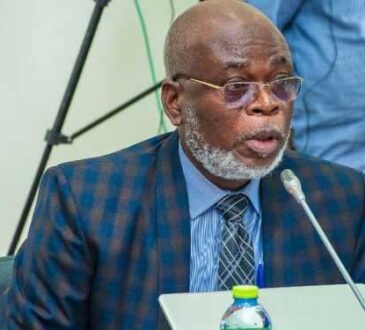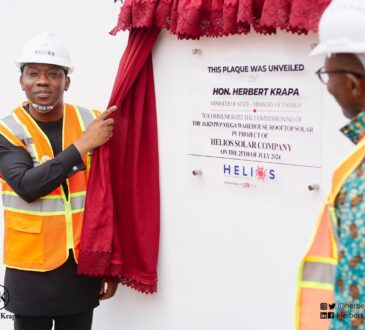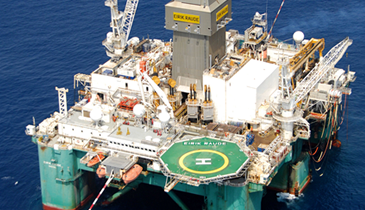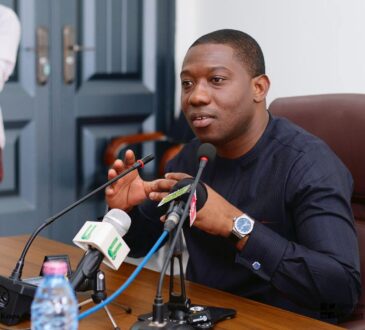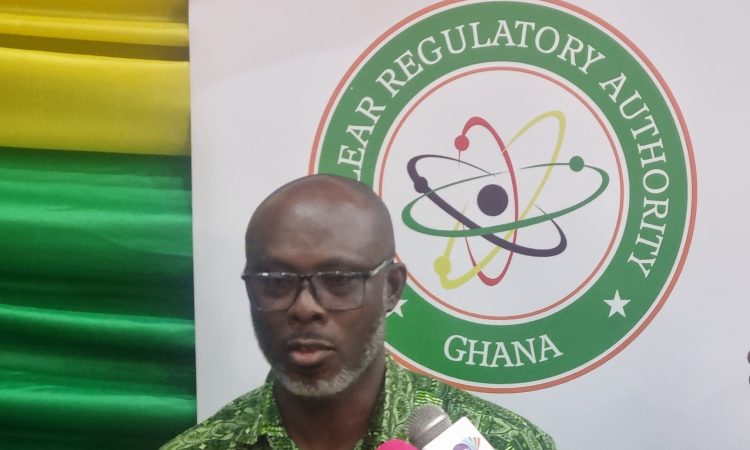
By Eugene Davis
The country’s nuclear power programme is expected to take shape with the selection of a vendor/partner and technology by the end of the year, the Executive Director of the Nuclear Power Ghana, (NPG) Dr.Steven Yamoah has disclosed.
Ghana has considered adding Nuclear Power to its energy mix in the long term. The Ghana Nuclear Power Programme Organisation is mandated to spearhead the development of this energy option. The country plans to install its first nuclear power plants by 2030 to diversify its energy mix with cheaper and more sustainable electricity production, according to the nation’s nuclear regulator.
Speaking with the media on the sidelines of a press conference in Accra under the auspices of the Nuclear Regulatory Authority (NRA), Dr. Yamoah gave an overview on the project progress report “hopefully by the end of the year we should be able to, in dialogue with the ministry of energy and government have a direction as to the vendor and technology and then it will pave the way for us to go into contract negotiations and discussions,”
He also disclosed that they have had two engagements, with the vendors to Ghana to visit the preferred site to have an appreciation of the terrain.
Alongside, the issue of the site -where the construction of the power plant will take place, the operators have also identified the preferred site and also a backup site, “we did a lot of technical studies in the area, studies are ongoing to now go into a detailed site characterization studies that will enable us collect site specific data that will inform the design of the power plant.”
Further, he also indicated that per the roadmap that was developed, the target was to complete phase two by 2024, phase one was 2017 but was missed and eventually completed in 2019, creating a gap that needs to be filled.
On the construction phase alone, he noted that it will take about six years, but maintained that it will depend on which direction the country will go for the first power project.
Review of roadmap
Dr. Yamoah also noted that the roadmap was prepared in 2015 and it has been run for six years, and is likely to be reviewed, “there is a major point as to when to review the roadmap, which is when a vendor and technology has been identified that seem to be the one major thing that will prolong the schedule.”
Decommissioning fund
Dr. Emmanuel Ampomah-Amoako,a Director of Nuclear Installations also stated that the Nuclear Regulatory Authority is on course to work out the mechanisms for the establishment of a decommissioning fund.
He explained the rationale of the fund “the purpose of the fund is to ensure that if I come to apply for a license to operate, and per any chance, I am unable to finish my business and later go back, there should be some funds available to take care of the waste or business I will leave behind. This is one of the responsibilities of this fund and it is to ensure that a company decides to go out of business, there would be some funds available to take care of the waste that will be there.”
The Director of Nuclear Power Institute (NPI), the technical arm of the project, Dr. Archibold Buah-Kwofi touched on the progress of the nuclear power programme, by noting that currently the country has “floated request for further information to vendors, we have received responses, those responses are being evaluated, we will come up with a report that will advise government on the potential strategic partner or vendor or technology to go with.
Secondly there are ongoing activity at the site, detailed site investigation to assess the site, its readiness for/to accept nuclear technology, we have to do detailed scientific investigations to ensure it is fit for purpose and at the end of phase two -the strategic partner would have to be identified, we have to come up with feasibility report that entails environmental impact assessment that has would be conducted as part of site characterization.”he added.
The press conference was hosted by the Nuclear Regulatory Authority (NRA) under the theme “The Role of the Nuclear Regulatory Authority in Ghana’s Nuclear Power Programme”.
It brought together diverse audience including representatives from various industries, media personnel,students and the broader nuclear community. It provided a platform on the status of Ghana’s nuclear programme from the Nuclear Power Institute of the Ghana Atomic Energy Commission and Nuclear Power Ghana and the role of the Nuclear Regulatory Authority.
NRA is an independent regulatory body established by the NRA Act, 2015 (Act 895) and began operations in January 2016. It seeks to effectively oversee the introduction of nuclear power into Ghana’s electrical energy grid by addressing safety, security and safeguards matters through the institution of an effective regulatory infrastructure.
The NRA has a statutory responsibility for regulating the civilian use of nuclear and other radioactive materials in medicine, industry, agriculture, education and research in Ghana.




